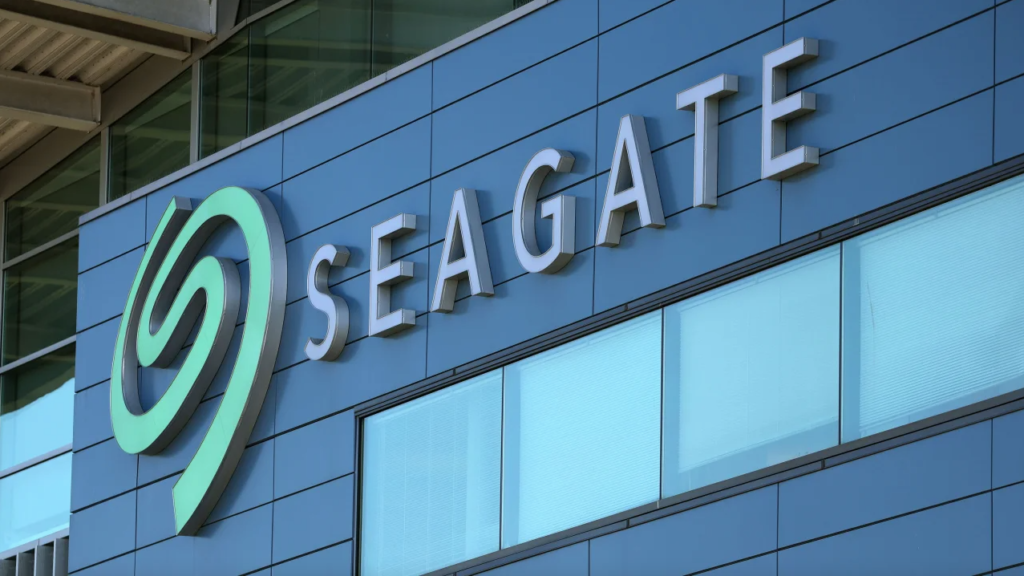|
Getting your Trinity Audio player ready...
|
US-based data storage company Seagate Technology has agreed to pay a $300 million penalty to US authorities as part of a settlement for shipping over $1.1 billion worth of hard disk drives to Huawei in violation of US export control laws. The Department of Commerce made the announcement on Wednesday.
Seagate sold the drives to Huawei between August 2020 and September 2021, despite an August 2020 rule that restricted sales of certain foreign items made with US technology to the Chinese company.
Huawei was placed on the Entity List, a US trade blacklist, in 2019 to reduce the sale of US goods to the company amid national security and foreign policy concerns. Seagate shipped 7.4 million drives to Huawei for about a year after the 2020 rule took effect, and became Huawei’s sole supplier of hard drives, the Commerce Department said.
The other two primary suppliers of hard drives, Western Digital and Toshiba, ceased shipments to Huawei after the new rule took effect in 2020, according to a 2021 report on Seagate by the US Senate Commerce Committee. The companies did not respond to requests for comment.
The penalty represents the latest in a series of actions by Washington to keep sophisticated technology from China that may support its military, enable human rights abuses or otherwise threaten US security. Seagate’s position was that its foreign-made drives were not subject to US export control regulations, essentially because they were not the direct product of US equipment.
“While we believed we complied with all relevant export control laws at the time we made the hard disk drive sales at issue, we determined that … settling this matter was the best course of action,” Seagate CEO Dave Mosley said in a statement.
In an order issued on Wednesday, the government said Seagate wrongly interpreted the foreign product rule to require evaluation of only the last stage of its manufacturing process rather than the entire process. Seagate made drives in China, Northern Ireland, Malaysia, Singapore, Thailand, and the United States, the order said and used equipment, including testing equipment, subject to the rule.
Seagate’s $300 million penalty is due in installments of $15 million per quarter over five years, with the first payment due in October. It also agreed to three audits of its compliance program and is subject to a five-year suspension order denying its export privileges.
Matthew Axelrod, assistant secretary for export enforcement at the Commerce Department’s Bureau of Industry and Security, called the administrative penalty the largest in the history of the agency not tied to a criminal case.
The penalty underscores the importance of complying with US export control regulations, especially in relation to high-tech products that could potentially threaten national security or be used for human rights abuses.
The settlement with Seagate is part of a broader effort by the US government to prevent Chinese technology companies, including Huawei, from gaining access to advanced US technology. The US has accused Huawei of using its technology to spy on behalf of the Chinese government, a claim that the company denies.
In May 2019, the US government added Huawei to its Entity List, effectively banning US companies from selling technology to the Chinese firm without a special license. The move was part of a broader campaign by the US to limit Huawei’s access to advanced US technology, which Washington fears could be used for espionage or other nefarious purposes.
Seagate’s penalty is just the latest in a series of fines and restrictions imposed by the US government on companies for violating export control regulations. In December 2020, Chinese telecom giant ZTE agreed to pay a $1.19 billion penalty to settle charges that it shipped US technology to Iran and North Korea in violation of US sanctions.
The US has also targeted other Chinese technology companies, including TikTok and WeChat, over national security concerns. In August 2020, the Trump administration issued an executive order banning US companies from doing business with TikTok’s parent company, ByteDance, citing concerns over data privacy and security. The order was later blocked by a federal judge.
The Biden administration has taken a more nuanced approach to China, focusing on competition and cooperation rather than confrontation. However, the US remains wary of China’s growing technological prowess and has pledged to invest in domestic research and development to maintain its technological edge.
In the meantime, companies like Seagate will have to be more careful about complying with US export control regulations. The penalty imposed on Seagate is a reminder that violating these rules can have serious consequences, not just for the company involved, but for US national security as a whole.
